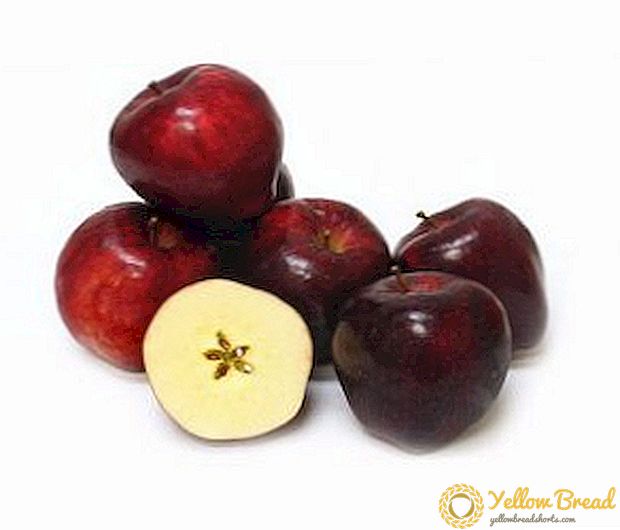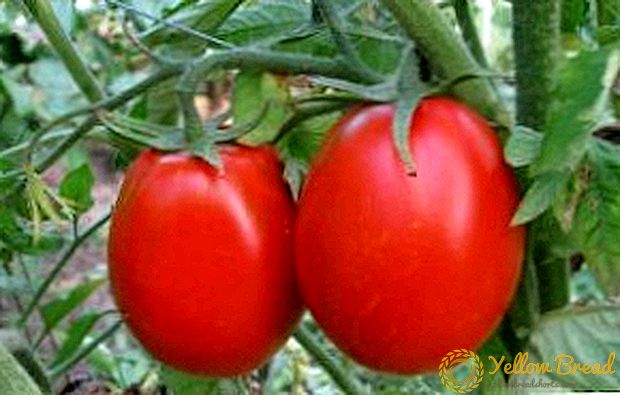 Drying is the easiest way to harvest apples for the winter. Due to its rich chemical composition, dried apples have many healing properties. Apple drying is widely used in cooking: in addition to the well-known compote, they are also used to make pies, pancakes, salads, jelly, added to cereals and tea, and eaten raw. In order for the dried apples to bring the body as much benefit as possible, they need to be dried with knowledge of technology and properly stored.
Drying is the easiest way to harvest apples for the winter. Due to its rich chemical composition, dried apples have many healing properties. Apple drying is widely used in cooking: in addition to the well-known compote, they are also used to make pies, pancakes, salads, jelly, added to cereals and tea, and eaten raw. In order for the dried apples to bring the body as much benefit as possible, they need to be dried with knowledge of technology and properly stored.
- The composition of dried apples
- The Use of Dried Apples
- Possible harm from dried apples
- Which apple varieties are best for drying?
- Preparation of apples for drying
- Ways to dry apples
- Outdoor drying
- Oven Drying
- Drying in the electric dryer
- Microwave Drying
- How to find out if apples are ready
- How to store dried apples
- Compote from dried apples
The composition of dried apples
 100 g of dried apples contain 2.2 g of protein, 0.1 g of fat, 59 g of carbohydrates, 14.9 g of dietary fiber, 2.3 g of organic acids, 20 g of water.
100 g of dried apples contain 2.2 g of protein, 0.1 g of fat, 59 g of carbohydrates, 14.9 g of dietary fiber, 2.3 g of organic acids, 20 g of water.
Many housewives are interested in whether there are vitamins in dried apples, because the product undergoes a long heat treatment. The set of vitamins in the drying is significant: vitamin A (retinol equivalent),provitamin A (beta-carotene), vitamin C (ascorbic acid), vitamin E (tocopherol), vitamin PP (niacin, niacin equivalent), vitamins of group B: B1 (thiamine), B2 (riboflavin). Drying also contains minerals necessary for the body: potassium, calcium, magnesium, sodium, phosphorus, iron.
The concentration of sugars (glucose, fructose and sucrose) in the product is quite high. Calorie drying apple is 230-245 kcal, which is much higher than that of fresh apples (about 50 kcal).
The Use of Dried Apples
Due to the presence of pectin and fiber product contributes to the work of the digestive organs, cleanses the body from harmful decay products and promotes metabolism. It is better for people with high acidity of the stomach to take dried fruits, because the content of fruit acids is not as great as that of fresh apples, and the benefits to the body are obvious.
The presence of iron in apple drying prevents the development of anemia, phosphorus contributes to the work of the brain. B vitamins are important for metabolism and a stable state of the nervous system. Ascorbic acid helps to improve the immune system, tannin, potassium and magnesium have a positive effect on the cardiovascular system.
 It would seem absurd to argue, what is the use of dried apples for losing weight, because their calorie content is quite high, but some actually use drying in the diet. A moderate portion of dried apple slices (about 10 pieces) can replace high-calorie sweets or become an alternative to dinner.
It would seem absurd to argue, what is the use of dried apples for losing weight, because their calorie content is quite high, but some actually use drying in the diet. A moderate portion of dried apple slices (about 10 pieces) can replace high-calorie sweets or become an alternative to dinner.
Possible harm from dried apples
Applying the drying of apples can not only benefit the body, but also harm.
Acids contained in apples irritate the mucous membranes of the digestive system, so people with chronic diseases of the stomach (gastritis, ulcers) should be consumed carefully and in small quantities, preferably after the main meal.
Due to the high content of fruit sugar, dried apples can have a bad effect on teeth in the presence of caries, and sticky pieces of dried apples stuck between the teeth can provoke the multiplication of bacteria. Therefore, you need to drink dried apples with water and use dental floss.
 During drying, the weight of an apple decreases due to evaporation of water, but the amount of sugars in it does not change,therefore, in case of diabetes and obesity, it is better to use the drying not in its pure form, but to make it compote. In case of diabetes of the second type, several slices of dried apple are allowed per day. The use of any dried fruit is contraindicated in acute pancreatitis, and in the chronic form of the disease, dried apples can be eaten in limited quantities, and it is better to drink compote.
During drying, the weight of an apple decreases due to evaporation of water, but the amount of sugars in it does not change,therefore, in case of diabetes and obesity, it is better to use the drying not in its pure form, but to make it compote. In case of diabetes of the second type, several slices of dried apple are allowed per day. The use of any dried fruit is contraindicated in acute pancreatitis, and in the chronic form of the disease, dried apples can be eaten in limited quantities, and it is better to drink compote.
When excessive consumption of dried apples during pregnancy a woman may receive additional excess weight. Babies of 6 months of age can be given just compote, they can choke on dried fruit.
Very carefully you need to eat dried apples with pits, so as not to provoke an excess of hydrocyanic acid. A safe amount for the body - 5 pits.
Which apple varieties are best for drying?
 For drying, it is better to choose sour-sweet fruits with juicy, but not watery pulp. From too sweet apples, drying will turn out friable and with dark spots of caked sugar (if dried in the sun).A larger amount of the product (and, accordingly, little waste) can be obtained from fruits with thin skin and a small seed box.
For drying, it is better to choose sour-sweet fruits with juicy, but not watery pulp. From too sweet apples, drying will turn out friable and with dark spots of caked sugar (if dried in the sun).A larger amount of the product (and, accordingly, little waste) can be obtained from fruits with thin skin and a small seed box.
Are good in drying varieties "White filling", "Cinnamon", "Antonovka", "Titovka", "Aport", "Pepin".
Preparation of apples for drying
First of all, the apples should be thoroughly rinsed in running water and dried. Then clean them from damage and remove the core (with a knife or special tool). It is not necessary to get rid of the peel of homemade apples, but the fruits bought in the store can be cleaned. Cutting apples is done with a regular knife or a kitchen slicer.
The shape of the sliced slices is not so important, the main thing is that they are the same in size for uniform drying. Slices should not be very thin or very thick, the optimum thickness of the pieces - 5-7 mm.
To protect apples from oxidation, several methods are used. The most simple:
- Blanching (boiling) slices in boiling water for a few minutes.
- Immersion in saline solution (a teaspoon of salt in 1 liter of water) for a few minutes.
- Immersion in acetic solution (2 g per 1 l of water) for a few minutes.
Ways to dry apples
In order for the finished product to be of high quality and stored for a long time, it is important to know how to dry apples at home correctly.
Outdoor drying
 In the open air, apples are dried in summer, when the air is hot enough. This method does not require energy costs, and at the same time a large number of fruits can be dried.
In the open air, apples are dried in summer, when the air is hot enough. This method does not require energy costs, and at the same time a large number of fruits can be dried.
Slices of apples are strung on a string or laid out on a baking sheet or net, covered with gauze (to protect against insects) and exposed to the sun. Every day they need to be turned. It takes 3-4 days to dry apples in bright sunshine, more in the shade.
In no case should the rain fall on the raw materials.
Oven Drying
The oven should be heated to 80 degrees. In the meantime, you can make a baking sheet with parchment and put sliced apples on it.
Put the pan in the oven and leave for half an hour. Then reduce the temperature by 10 degrees and leave the apples in the oven for 5 hours. When the moisture has evaporated enough, turn the slices to the other side, lower the oven temperature to 50 degrees and dry the apples for another 4 hours, turning them periodically.
Drying in the electric dryer
Sliced apples are placed in plastic pallets of the dryer in a single layer, set the temperature to 55-60 degrees and stand for about 8 hours.
Microwave Drying
 The superiority of this method is a significant time saving, but at the same time a small amount of apples will be dried. On drying apples in the microwave takes up to 5 minutes time.
The superiority of this method is a significant time saving, but at the same time a small amount of apples will be dried. On drying apples in the microwave takes up to 5 minutes time.
Slices should be placed on a plate. Dry with a power of 200 W in short doses of 30 seconds. After each of them, the apples need to be checked and turned.
How to find out if apples are ready
Ready drying does not emit juice, the flesh does not stick and does not break when the lobules in hand are squeezed. Dried in the oven, the apples get a light brown shade, in the microwave - cream. The peel of the finished product fades.
Before being placed in a storage container, make sure that the dried apples have cooled.
How to store dried apples
 Dried apples can be folded into a fabric bag or glass jar with a tight-fitting lid, a wooden box, a cardboard box or a basket, and paper should be spread on the bottom and top.Storage space for dried apples must be dry, dark and cool. This may well be a pantry or a kitchen cupboard, but in this case, the container with apples should be kept away from strongly smelling foods (such as spices) so that the dried fruits do not absorb the aroma.
Dried apples can be folded into a fabric bag or glass jar with a tight-fitting lid, a wooden box, a cardboard box or a basket, and paper should be spread on the bottom and top.Storage space for dried apples must be dry, dark and cool. This may well be a pantry or a kitchen cupboard, but in this case, the container with apples should be kept away from strongly smelling foods (such as spices) so that the dried fruits do not absorb the aroma.
In the warmer months, drying can be stored on the balcony, it needs to provide ventilation to prevent mold. If you store dried apples in the light (for example, in a glass jar on a windowsill), they quickly darken.
Sometimes with improper storage in the drying pests can start: moths, sugar mites, bugs. During storage, apples must be inspected for the presence of parasites. Signs of the appearance of moths can be white worms, pellets, traces of cocoons.
If the pests are still wound up, the apples need to be sifted out and discarded the damaged pieces. Normal particles can be calcined in the oven at 70 degrees or sent to the refrigerator for a day. Sometimes for prevention from pests for some time, drying can be put on the cold (on the balcony in winter or in the freezer).
If the drying was struck by mold, it is better to throw it away, because the mold spores penetrate deep into the product and it is impossible to wash them completely.If the mold has not yet appeared, but the dried fruits began to get wet and stick together, they can be saved by washing and roasting in the oven.
Compote from dried apples
Compote is made from dried apples and various additives.
 For 1 liter of water you need to take about half a glass of dried apples. First, they need to be sorted out and removed the damaged pieces (during storage, some parts may be affected by mold), washed and dried. Next, the apples should be placed in boiling sugar syrup and cook for 20-30 minutes.
For 1 liter of water you need to take about half a glass of dried apples. First, they need to be sorted out and removed the damaged pieces (during storage, some parts may be affected by mold), washed and dried. Next, the apples should be placed in boiling sugar syrup and cook for 20-30 minutes.
If you pour apples with cold water and add sugar, the cooking time will be reduced to 15 minutes. If the compote consists not only of apples, it is necessary to take into account the cooking time of other ingredients. Simultaneously with apples need to lay pears and apricots. Prunes, wild rose and rowan can be added after 10 minutes, raisins - 5 minutes before readiness.
Compote can be flavored with spices (clove, cinnamon), add dry herbs (lemon balm, chamomile) and lemon juice.
In many countries, the apple is the most popular fruit.Due to the drying, the apple harvest can be preserved for a long time and can be tasted in winter, when the body needs vitamins and nutrients.






